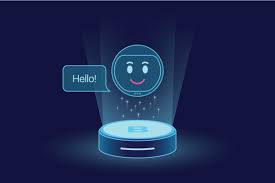 Tech complexity for new users is getting worse. And it’s pretty obvious to anyone who is paying attention to Apple new releases, new versions of Android phones and other apps like Spotify. And then there’s the PC that runs out of memory – just encountered yesterday. You want to see what that means by checking the manual. How naïve. No manual. So you do what everyone who has just encountered an error message does. You search the tech forums, find the example of what happened and voilà, there’s the fix. Certainly that must be what senior living residents and older adults living at home do, not to mention the of-course sizable tech staff working in senior living and elder care. Oops.
Tech complexity for new users is getting worse. And it’s pretty obvious to anyone who is paying attention to Apple new releases, new versions of Android phones and other apps like Spotify. And then there’s the PC that runs out of memory – just encountered yesterday. You want to see what that means by checking the manual. How naïve. No manual. So you do what everyone who has just encountered an error message does. You search the tech forums, find the example of what happened and voilà, there’s the fix. Certainly that must be what senior living residents and older adults living at home do, not to mention the of-course sizable tech staff working in senior living and elder care. Oops.
Enter the tech concierge. Some senior living companies during Covid saw the need to help residents with their devices. One of the biggest now has a tech concierge in their communities, though that doesn’t appear to be a common initiative across other large communities. Then there is software from Volara (now owned by Uniguest, available as part of Touchtown Voice) offer tech concierge services that can help save staff some effort supporting individual users. And there are online training services like GetSetup that offer live online classes for older adults. And organizations like OATS that offer video explanations of basic tasks, like how to set up an AppleID or use Instagram. All useful, but first one must search and find the site, locate the proper video to play.
What about voice? Perhaps not surprising, but as of 2022, 36% of Americans own a smart speaker of some type. Growth has slowed , but voice usage did not – 46% of Americans are accessing a voice assistant at least once per month. And at the end of 2021, 90% of US Internet users accessed the Internet via a mobile phone. How about those aged 65+? According to AARP, smartphone ownership is way up, even among those aged 70+. But that same survey notes that many believe that technology is not being designed with older adults in mind.
Consider the voice-enabled tech concierge. Do your own experiment – ask a series of questions to a smart speaker near you: how do I download a Gmail attachment; what is the best way to store a password; how do I join a Zoom meeting; how do I print from a smartphone (that answer was impressive)? Consider the growing adoption of voice devices in senior living, and the likely absence of a tech concierge. One option is to create an Alexa skill for a senior living chain (like Watermark) that can answer the most frequently posed tech questions. Better, create an Alexa skill for Frequent Tech Questions that combines the questions (like the above examples) with answers. Then update it periodically, with more questions, better answers. Thoughts welcome.
[NOTE: Check out the 2022 Technology for Aging Market Overview]

 Tech complexity for new users is getting worse. And it’s pretty obvious to anyone who is paying attention to Apple
Tech complexity for new users is getting worse. And it’s pretty obvious to anyone who is paying attention to Apple
Comments
From Amy Stapleton via LinkedIn
Cool idea, especially if the answers to the tech questions could be combined with visuals or videos. For some tech questions it’s complicated to give a good answer without showing something.